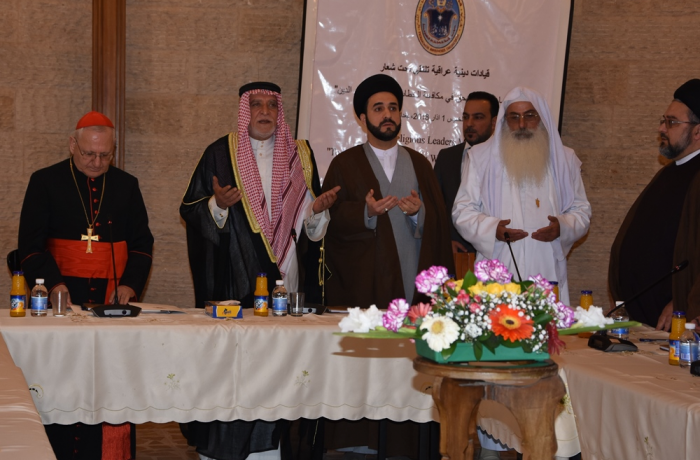Islam celebrates the end of Ramadan, the holy month of fasting and prayer. The faithful will be able to have a meal again in the light of day. The party is an occasion for charity and solidarity. Chaldean patriarch: a moment of renewal, to forget differences and forgive each other. Development for the country and the region.
Baghdad (AsiaNews) – On the feast of Eid al-Fitr “I address the most sincere congratulations and best wishes” to all Muslims “our brothers in humanity”, asking God “to protect them and our country” from “evil”.
This is what the Chaldean patriarch, Card Louis Raphael Sako, writes in his message to the faithful of Islam – and sent to AsiaNews for information – on the occasion of the celebrations for the end of Ramadan, the holy month of fasting and prayer. The bishop explains that the feast is an opportunity for everyone, even for Christians “for personal renewal, to forget the differences, forgive each other and seek reconciliation”.
The festivity is scheduled for tomorrow, June 4, and marks the end of the month of prayer and fasting and will last until the evening of the following day. On this occasion, Muslims thank Allah for giving them strength and blessings, in the hope that the holy month of Ramadan helped them get closer to God and to the perfection required of every believer.
The first to celebrate the Eid al-Fitr was Muhammad himself in 624 AD, following a victory in an important battle. The festivities change according to belonging to the Sunni or Shiite world, or places of origin; Muslims generally gather at mosques or in the open air, like parks, to recite morning prayers.
At the end they gather to eat the meal, the first in the light of day after a month of abstinence and fasting. The celebrations continue for at least three days and are considered a national holiday in countries with a Muslim majority. Added to this are special acts of charity, such as lunches or banquets for the poorest. The Eid al-Fitr is an opportunity for Christians and Muslims to meet and the Pontifical Council for Interreligious Dialogue prepares an official message each year.
For the Chaldean patriarch, true reconciliation is also a prerequisite for “removing the barriers that separate us”, in order to “strengthen relationships, live in harmony and fill the environment that surrounds us with love and joy”. After the agony, the suffering, the killings, the destruction and the displacement, adds the cardinal, “that the Iraqis have had to experience” today they are looking for a “peaceful life, in a perspective of human fraternity”, founded on dignity and mutual respect. The leaders, on the other hand, have the task of guaranteeing everyone, Christians and Muslims, “equal rights and duties”.
This change, concludes Card Sako, must take place “from within us, not from outside or by the hand of others”. Bearing in mind, he adds, that the Iraqis – after the violence that followed the US invasion in 2003 and the jihadist drift with al Qaeda and the Islamic State – “no longer have the energy to endure other conflicts”. “On the contrary, the Iraqis – he concludes – are looking forward to freeing themselves from fear, anxiety, poverty, disease and corruption to achieve real development for the country and for the whole region”.






